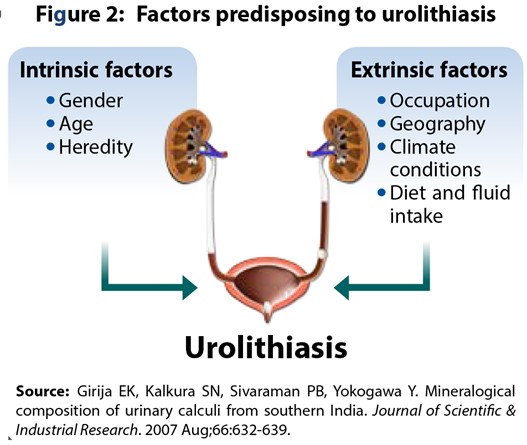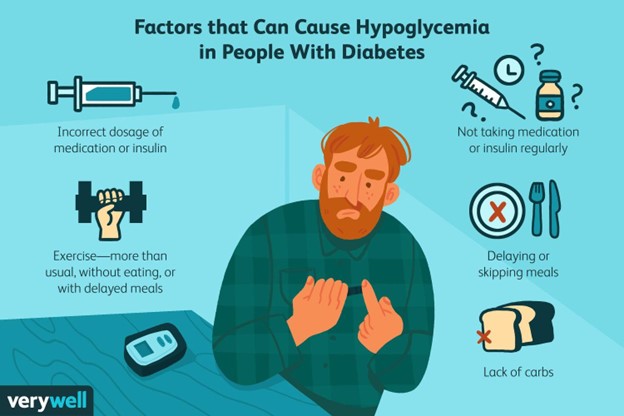A nurse is contributing to the plan of care for a client who has urolithiasis. Which of the following interventions should the nurse include in the plan?
Tell the client to expect a decrease in urine output.
Encourage the client to drink 3 L of fluids per day.
Provide the client with a high protein diet.
Maintain the client on bed rest.
The Correct Answer is B
Choice A Reason: Telling the client to expect a decrease in urine output is not an appropriate intervention for a client who has urolithiasis, as it may indicate dehydration, obstruction, or infection.
Choice B Reason: Encouraging the client to drink 3 L of fluids per day is an appropriate intervention for a client who has urolithiasis, as it helps to flush out stones, prevent new stone formation, and reduce urinary concentration.
Choice C Reason: Providing the client with a high protein diet is not an appropriate intervention for a client who has urolithiasis, as it may increase uric acid and calcium excretion and promote stone formation.
Choice D Reason: Maintaining the client on bed rest is not an appropriate intervention for a client who has urolithiasis, as it may decrease renal perfusion and increase urinary stasis.

Nursing Test Bank
Naxlex Comprehensive Predictor Exams
Related Questions
Correct Answer is D
Explanation
Choice A Reason: Ketoacidosis is not likely to be the complication that the nurse should suspect, as it is caused by high blood glucose levels and results in symptoms such as nausea, vomiting, abdominal pain, fruity breath, and deep breathing.
Choice B Reason: Hyperglycemia is not likely to be the complication that the nurse should suspect, as it is caused by high blood glucose levels and results in symptoms such as thirst, polyuria, blurred vision, dry skin, and fatigue.
Choice C Reason: Nephropathy is not likely to be the complication that the nurse should suspect, as it is a chronic kidney disease that develops over time due to diabetes and results in symptoms such as proteinuria, edema, hypertension, and anemia.
Choice D Reason: Hypoglycemia is likely to be the complication that the nurse should suspect, as it is caused by low blood glucose levels and results in symptoms such as sweating, tachycardia, lightheadedness, shakiness, hunger, and confusion.

Correct Answer is D
Explanation
Choice A Reason: Compressing the nares is not the first action that the nurse should take, as it may increase intracranial pressure and worsen the head injury.
Choice B Reason: Administering decongestant for postnasal drip is not the first action that the nurse should take, as it may mask the signs of cerebrospinal fluid (CSF) leakage and delay diagnosis and treatment.
Choice C Reason: Tilting the head back is not the first action that the nurse should take, as it may cause aspiration of CSF or blood and increase the risk of infection.
Choice D Reason: Collecting the drainage is the first action that the nurse should take, as it helps to identify if the drainage is CSF or nasal secretions, and to monitor the amount and characteristics of the drainage.
Whether you are a student looking to ace your exams or a practicing nurse seeking to enhance your expertise , our nursing education contents will empower you with the confidence and competence to make a difference in the lives of patients and become a respected leader in the healthcare field.
Visit Naxlex, invest in your future and unlock endless possibilities with our unparalleled nursing education contents today
Report Wrong Answer on the Current Question
Do you disagree with the answer? If yes, what is your expected answer? Explain.
Kindly be descriptive with the issue you are facing.
